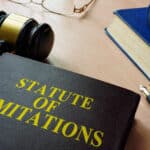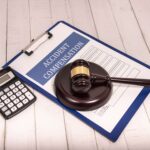Everyone knows that the first thing that you should do after sustaining serious injuries in an auto accident in Arizona or anywhere else is to call 911. But what if the 911 operator who answers your call can’t find you? It’s important to do everything you can to receive medical assistance for yourself and others after an accident and to take all necessary steps to minimize the injuries, damages, and potential fatalities that might occur. Yet, in many cases, people find that their 911 call is more complex than they expected.
It Can Be Challenging for 911 Operators to Locate Your Cell Phone
Many mistakenly believe that their cell phones and smart phones can always be easily tracked. The scene of the accident can be ascertained by triangulating the location of the cell phone call with GPS information. Yet, what you might not know is that your call information is routed through the nearest tower, making it challenging to determine your location quickly enough. If the 911 operator can’t locate the scene of your accident, and you are not sure of your exact location or how to direct them to that location, then this can become a much scarier situation.
According to information on reports and documents at the local, state, and federal level, your location determines how easy it is to find you through accessible location data. In some places, you have a 95% chance of being located. In other cases, you only have a 10% chance. One prime example of an obstacle to being found is that up until 2013, more than 50% of California cell phone calls to 911 did not transmit data regarding the location of the caller. In Texas, the rate was 2/3, and in one location in Virginia (Fairfax County), only 25% of calls included reliable location data. This means that 75% of 911 callers experienced delays in emergency response. Cell phones make it easier for you to reach 911 faster than ever, no matter where you may be; yet, they make it more difficult for 911 to reach you if they can’t figure out where you are.
How Is Your Cell Phone Location Found Out?
Whenever you make an emergency phone call to 911, and your location data is not sent to the dispatcher right away, then their computer will send a request for location data to your cell phone network. You can imagine that this takes more time than calls that immediately transmit your location to the dispatcher. If you are able to voice your precise location, then this will be much quicker than waiting for the cell phone network to respond. It takes even longer in cases where the call was already routed through a cell phone tower in a different location.
What’s Being Done to Improve the Situation?
After recognizing and acknowledging the delays associated with finding your location through a 911 call made from a cell phone, new rules were issued by the FCC to cell phone carriers. The goal is to improve the reliability of location data in 911 cell phone calls, and the associated plans will be enacted in 2017. So, something is being done to improve this situation, but it’s going to take time, which is exactly what you might not have after an Arizona auto accident.
Local public safety agencies are working on developing various new methods of ensuring that emergency responders are able to locate and reach you more quickly after an accident. One example is to ask the caller for landmarks if they don’t know exactly where they are – which many people don’t after an auto accident. If you see certain buildings or signs, then relaying this information can help the 911 dispatcher to find your actual location.
What To Do After an Arizona Auto Accident
The most important thing that you can do after an Arizona auto accident is to remain as calm as possible and call 911. This is still your best option to receive emergency attention. By remaining calm, you can better assess your situation, explain it to the 911 dispatcher, and offer landmarks to help them determine exactly where you are. Then, contact our skilled Arizona auto accident lawyer, Nathaniel B. Preston, PLLC at your earliest convenience to find out how we can help you to pursue compensation for your injuries and losses.







